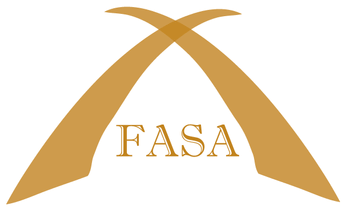Where's the money? Florida seeks to better track school voucher funds at private schools
Students enrolled in the state's Family Empowerment Scholarships are bouncing back to public schools, but the funding isn't following the students, public school officials say.
It's caused confusion and budget discrepancies, and district funds have been stretched thin, complicating the collective bargaining process with teachers' unions, for instance.
Now, the Florida Senate has a plan to clamp down, improving tracking to ensure the money follows the student and splitting the scholarship funds from the state money for public K-12 schools.
The scholarships were made possible under a law makes all Florida students eligible for taxpayer-financed vouchers to attend private schools. But problems arise when private schools keep the money but lose the students.
"This is a big deal, and I really believe that what we have before us is an attempt to make sure that we save this program so that it lasts and that it fulfills its promise for families that want to take advantage of it," said Sen. Danny Burgess, R-Zephyrhills, chair of the Senate Appropriations Committee on PreK-12 Education.
The bill was given bipartisan approval, with all but one Democratic senators voting yes.
Average scholarship is between $7,430 and $8,120
The Family Empowerment Scholarships are funded by taxpayers and the Florida Tax Credit program, which is privately funded by corporate donors. House Bill 1, the legislation that created Family Empowerment Scholarships in 2023, dictates the state use the tax credit money first before the money allocated by the Legislature.
In 2023, scholarships varied by grade level and county, with the average between $7,430 and $8,120.
As of March 2025, 494,238 students were funded in the scholarship program for the 2024-25 school year through Step Up for Students, a state-approved scholarship funding organization. Sen. Don Gaetz, R-Pensacola, said the bill isn't aimed to address "wasteful spending" but to make sure the money follows the students.
"The question about whether or not we're going to have universal school choice and whether or not there are Family Empowerment Scholarships, that ship sailed," said Gaetz, the sponsor of the bill.
Burgess called universal vouchers "amazing" and said there would be growing pains and hiccups as the program grows, but said he was happy with the proposed changes.
"Boy, does this take a big bite (out) of a lot of the problems and constraints that we've been hearing," Burgess said.
Currently, Family Empowerment Scholarships are not tracked at the district level, and the funds do not follow the student in a timely manner, critics say. The scholarships are dispersed every quarter, not every month, which can cause discrepancies in budgets if a student changes from public to private school within that quarter.
"Families that are getting paid in August and October and then showing up in our schools, it's not like we're going to get that money back," said St. Lucie County Schools Superintendent Jon R. Prince in early February at a House PreK-12 Budget Subcommittee meeting.
Also last month, Polk County Schools Superintendent Frederick Heid said his district's budget forecast varies greatly from the beginning of the school year to the third quarter recount, partly because of the lack of tracking Family Empowerment Scholarship students.
Heid said that, in an internal investigation, the district found 750 students who are attending Polk County Schools who are also receiving the scholarship. It was an estimated $1.5 million in funds the school district is losing.
"I always think that Murphy's Law – whatever can go wrong, will go wrong – is kind of where we are right now," Prince said.
"Good intentions have caused a lot of confusion."
Ana Goñi-Lessan, state watchdog reporter for the USA TODAY Network – Florida, can be reached at agonilessan@gannett.com.
